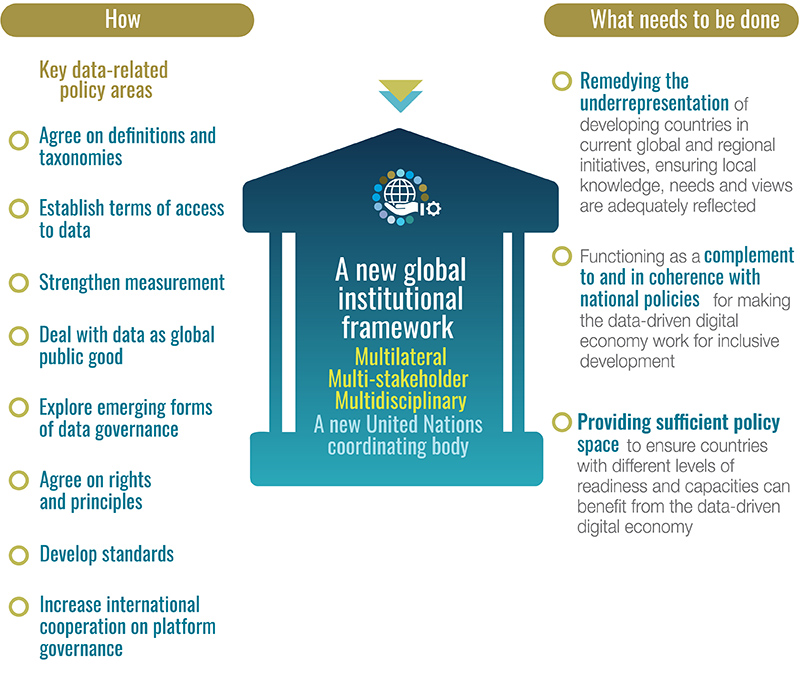
Why global data governance matters for development
International bandwidth surging
Data flows are expanding rapidly. Global Internet Protocol traffic in 2022 – domestic and international – is expected to exceed all Internet traffic up to 2016. The trend accelerated during the COVID-19 pandemic and global Internet bandwidth saw its largest one-year increase since 2013. Most crossborder data flows run between North America and Europe and between North America and Asia.
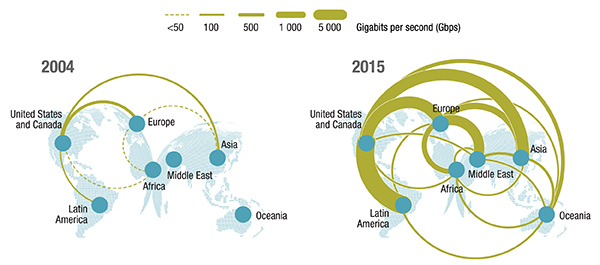
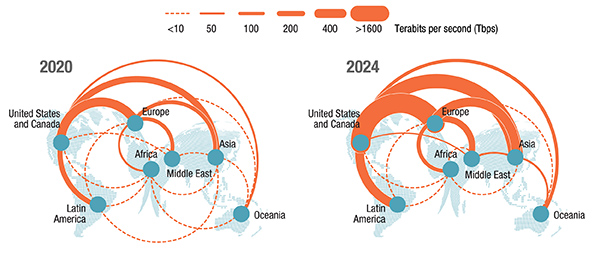
Big divides challenge the digital economy
Internet use, global, by level of development, selected years (Per cent)

The data-driven digital economy is characterized by large imbalances: Only 20 per cent of people in least developed countries use the Internet; when they do, it is typically at relatively low download speeds and with a relatively high price tag attached. This limits the possibilities to participate in and benefit from the evolving data-driven digital economy. Consequently, a data-related divide is adding to the traditional digital divide.
Concentration in value-creation and capture in the digital economy
Two countries stand out in terms of capacity to engage in and benefit from the data-driven digital economy: the United States and China. They account for about 90 per cent of the market capitalization of the world’s largest digital platforms.
The top seven global platforms are increasingly investing in all parts of the global data value chain, leveraging their competitive data advantage and increasing the gap to the competition.
China and the United States
The front-runners in harnessing the value of data
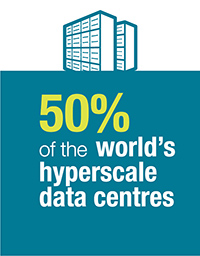
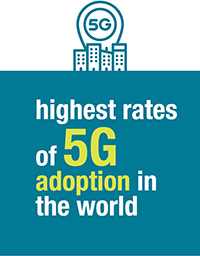
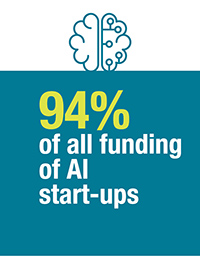
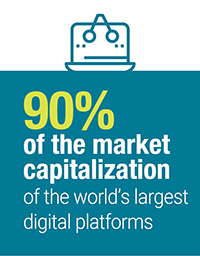
Risk of a fragmenting digital space
Among the major geopolitical players in the digital economy, the approaches for governing data flows – and the digital economy more broadly – vary considerably. Somewhat simplified, the United States focuses on control of the data by the private sector. The Chinese model emphasizes control of data by the Government, while the European Union favours control of data by individuals on the basis of fundamental rights and values. The current context is one of tensions among these areas, particularly between the United States and China.

Mapping of regulations on cross-border data flows
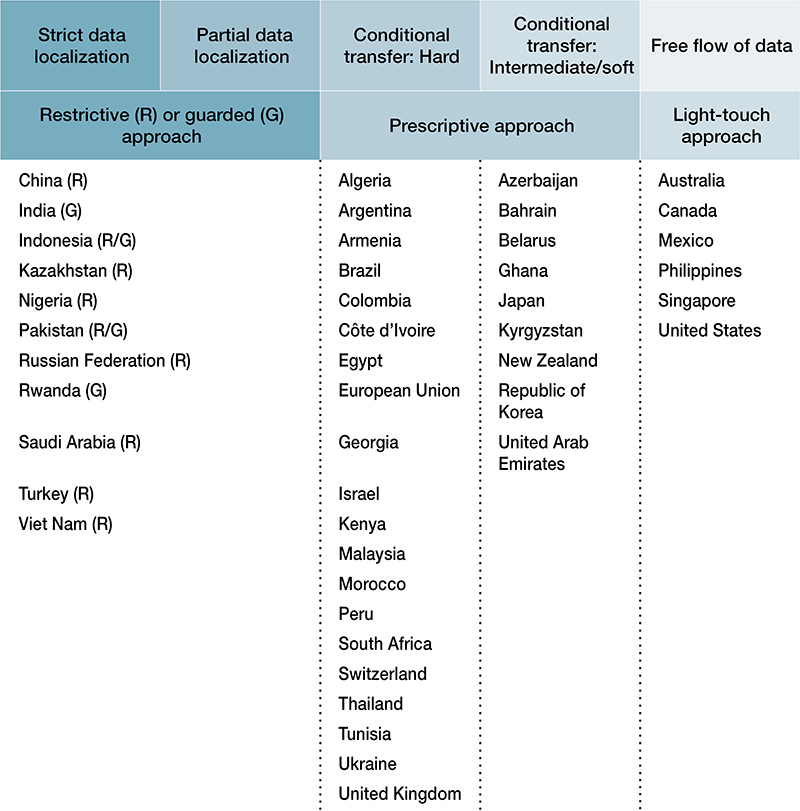
There can be various legitimate public policy reasons for countries to regulate cross-border data flows, such as the protection of privacy and other human rights, national security, as well as economic development objectives. A review of national policies suggests that the chosen regulations depend on the technological, economic, social, political, institutional and cultural conditions in each country. Economies can be mapped on a regulatory spectrum based on the assessment of relevant domestic laws, regulations and policies regulating cross-border data flows, ranging from strict data localization regulations to policies for free flow of data.
Global framework to enable data flows, with development objectives in mind
A strong case can be made for a global data governance framework that complements other levels of governance. A global approach in this area needs to address several key policy areas and priorities. Existing institutional frameworks at the international level are not fit for purpose to address the specific characteristics and needs of global data governance. For global data governance to be effective, a new global institutional framework is needed, with the appropriate mix of multilateral, multi-stakeholder and multidisciplinary engagement. Global debates on the governance of data and cross-border data flows need to be fully inclusive; they should ideally take place under the auspices of the United Nations, the most inclusive international forum in terms of country representation.
Data flows as free as necessary and possible, while addressing key development objectives
